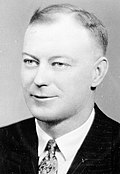| |||||||||||||||||||||||||||||||||||||||||||||||||||||||||||||||||||||||||||||||||||||||||
52 seats in the Legislative Assembly of Saskatchewan 27 seats needed for a majority | |||||||||||||||||||||||||||||||||||||||||||||||||||||||||||||||||||||||||||||||||||||||||
|---|---|---|---|---|---|---|---|---|---|---|---|---|---|---|---|---|---|---|---|---|---|---|---|---|---|---|---|---|---|---|---|---|---|---|---|---|---|---|---|---|---|---|---|---|---|---|---|---|---|---|---|---|---|---|---|---|---|---|---|---|---|---|---|---|---|---|---|---|---|---|---|---|---|---|---|---|---|---|---|---|---|---|---|---|---|---|---|---|---|
| |||||||||||||||||||||||||||||||||||||||||||||||||||||||||||||||||||||||||||||||||||||||||
| |||||||||||||||||||||||||||||||||||||||||||||||||||||||||||||||||||||||||||||||||||||||||
The 1938 Saskatchewan general election was held on June 8, 1938, to elect members of the Legislative Assembly of Saskatchewan.
Contents
- Results
- Percentages
- Ranking
- Riding results
- Northwestern Saskatchewan
- Northeastern Saskatchewan
- West Central Saskatchewan
- East Central Saskatchewan
- Southwest Saskatchewan
- Southeast Saskatchewan
- Urban constituencies
- See also
- References
- Further reading
The Liberal Party was returned to power under its new leader, William John Patterson, but it lost twelve of the seats it had held in the previous legislature. The Liberals faced several new forces in this election.
The Co-operative Commonwealth Federation, a democratic socialist party led by George Hara Williams, became the official opposition winning over 18% of the vote and ten seats in its first election. The party previously had five seats after the Farmer-Labour Group became the Saskatchewan CCF following the previous election.
The Social Credit Party of Saskatchewan, which promoted the social credit theories of monetary reform, rode a wave of popularity from the 1935 electoral success of its Alberta counterpart and collected almost 16% of the votes, but won only two seats.
Six "Unity" candidates also ran in an attempt to create a popular front of the Communists, CCF supporters and various populists. Although two were elected, they received only a very small fraction of the overall vote. [1]
The Conservative Party – under its new leader, John Diefenbaker – continued its decline as their share of the popular vote fell from 25% to under 12%. The party won no seats, same as had happened in 1934. A Conservative campaign handbill, "Electoral Reform. An electoral absurdity - 1934 election", brought up the Liberal government's broken pledge to adopt the single transferable voting election system. [2] Diefenbaker later had more success in the federal Conservative Party, eventually becoming leader and sweeping the party to power in the 1958 election with a huge majority.


